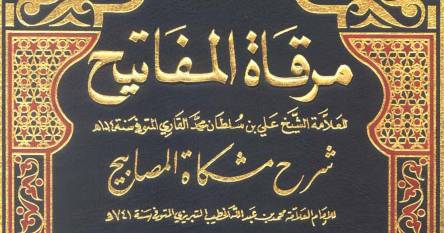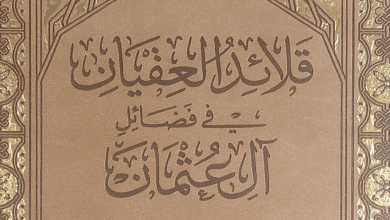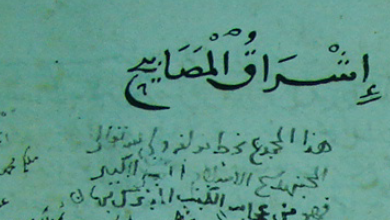Imam Ali al-Qari (d. 1014 AH) on how to understand the Attributes of Allah
Imam Ali al-Qari (d. 1014 AH) on how to understand the Attributes of Allah
The famous Hanafi scholar known as Imam Ali al-Qari (d. 1014 AH) said in his well acknowledged and respected commentary to Mishkat al-Masabih (of Imam Waliud-Din al-Tabrizi), known as Mirqat al-Mafatih, the following methodology on how Sunni scholarship understood the methodology to understand the Attributes (Sifat) of Allah:
From the sayings of Shayh al-Rabbani Abu Ishaq al-Shirazi, Imam al-Haramayn, al-Ghazzali and other than them among our Imams, it is known that both methods agree on leaving out the apparent meanings, like for the [terms] maji, sura, shakhs, rijl, qadam, yad, wajh, ghadab, rahma, istiwa ‘ala l-‘arsh, al-kaoun fi l-sama, [literally: coming, image, person, leg, foot, hand, face, anger, mercy, being established over the Throne, being in the Sky] and other than that among all the expressions which, if taken literally lead to things which are considered unbelief (kufr) by consensus (ijma’) […]. The whole of the Salaf and of the Khalaf have agreed upon leaving out the literal meanings but they diverged over [this issue]: do we simply leave the literal meaning, believing in the fact that God is attributed with what befits His Greatness and Perfection, without making any other interpretation (ta’wil)? And this is the way of most of the Salaf, which is a “ta’wil ijmali” (a general interpretation); or do we interpret with something else, which is the way of most of the khalaf, and which is a detailed interpretation (ta’wil tafsili)? They (i.e. the khalaf) were not aiming at contradicting the Pious Predecessors by doing so, may God protect us from supposing such a thing from them! However, they were compelled by a necessity in their times with the multiplicity of anthropomorphists, of Jahmis and other than these two groups among the deviated groups and their control over the minds of the masses. They meant, by this [i.e. by their detailed interpretations] to answer their heresies, but many of them also warned: “Had we been upon what the Pious Predecessors were upon in terms of purity of the beliefs and the non-existence of heresies of their times, we would not have delved into the interpretation of anything […]”.
I have learned that Malik and al-Awza‘i, who were both among the greatest [scholars] of the Salaf have interpreted [some] hadith in detail and so did Sufyan al-Thawri who interpreted the “istiwa ‘ala l-‘arsh” as His Order (…). Some of the salaf and of the khalaf said that the one who believes in a direction [for Allah] is a non-Muslim, as has been narrated by al- ‘Iraqi, who said that this was the opinion of Abu Hanifa, of Malik, of a Shafi‘i, of al-Ash‘ari and of al-Baqillani.” (Mirqat al-mafatih : sharh Mishkat al-Masabih, vol. 3 (Beirut: Dar al-Fikr, 1992), pp.299-300, Quoted by Dr. N. Nahouza in Contemporary Wahhabism rebranded as Salafism : the issue of interpreting the Qur’anic verses and hadith on the Attributes of God and its significance, p. 44).







